Berlinale 2022
Not a festival of unadulterated joy
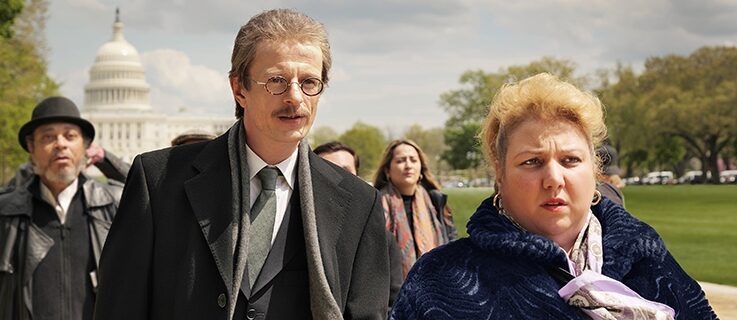
The film programme has been published; the Berlinale is ready for the off. But the fact that one of the world’s most important film festivals is going ahead as an in-presence event – despite rising infection rates and ongoing disruption to daily routine – gives rise to a certain degree of unease even amongst consummate movie buffs.
By Ula Brunner
This is the second time in a row that the Berlinale is being held while the pandemic is at a peak – and yet again Mariette Rissenbeek and Carlo Chatrian find themselves having to deal with a crisis situation. The two-phase approach from 2021 – a digital trade event in February and a catch-up summer Berlinale for the general public – was not an option the director duo was willing to consider for the 72nd Berlinale. That’s understandable, because it was hard to drum up a festival atmosphere the previous year. On top of that, with ticket sales at just 58,000 (for 194 films) the profit lagged far behind the pre-pandemic years, when over 300,000 movie tickets were sold, allowing the Berlinale to establish a reputation as the festival with the largest audience worldwide.
With stringent hygiene regulations – but as an in-presence event
Instead, the Berlinale is now being held in “reduced format”, as an in-presence event with a slimmed-down programme. Parts of the festival are being shifted online – the European Film Market for instance. But according to Rissenbeek it is only possible to retain the “spirit of the Berlinale” by holding an in-person festival. Extremely stringent safety measures and halving the number of seats are meant to prevent contagion in the audience. There is no mention of a parallel hybrid concept, which could be used to control crowds and therefore infection risk – which is present despite masks, tests, double and triple vaccination. Unfortunately. It means those people who can’t or don’t want to travel to Berlin during the pandemic lose out too.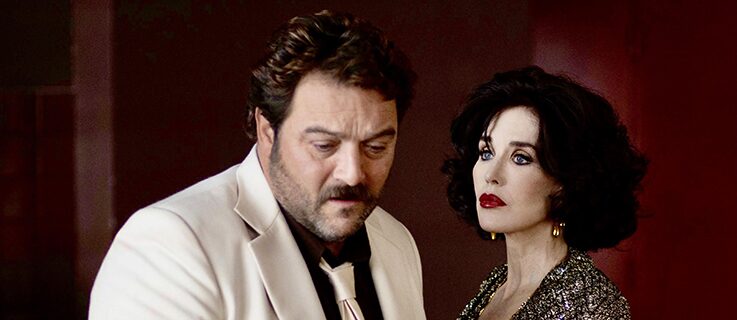 “Peter von Kant“ by François Ozon | Photo (detail): © C. Bethuel / FOZ
“Peter von Kant“ by François Ozon | Photo (detail): © C. Bethuel / FOZ
Many of the films revolve around “family” and “love”
6,755 productions were submitted for the 72nd Berlinale, of which a total of 256 short and full-length films are being screened. That’s around one-fifth fewer than 2020, the year it was just about possible to hold the festival under normal conditions. This time, 18 films produced in 17 countries are competing for the Silver and Golden Bears in the centrepiece “Competition” section, with most entrants hailing from within Europe. “Family” and “Love” are the core themes, with only two of the films specifically addressing the pandemic, explained Chatrian in his presentation of the programme. Eleven filmmakers had presented their work at the Berlinale before, he said, eight of them had entered the Competition and five were previous winners of the Bear awards.GERMAN FILMS AND CO-PRODUCTIONS IN COMPETITION
Andreas Dresen, the greatest everyday poet in cinema today, has also been in the Berlinale Competition multiple times. In his current work, he is entering explicitly political territory for the first time. In Rabiye Kurnaz gegen George W. Bush (Rabiye Kurnaz vs. George W. Bush), a housewife from Bremen with Turkish roots battles all the way to the Supreme Court in Washington for the release of her son from the prison camp at Guantanamo.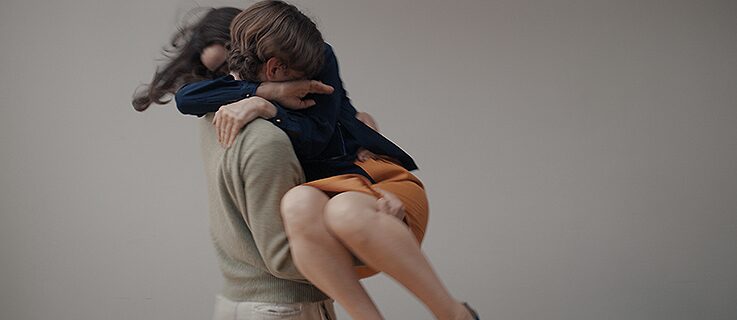 „A E I O U – A Quick Alphabet of Love“ by Nicolette Krebitz | Photo (detail): © Reinhold Vorschneider / Komplizen Film
„A E I O U – A Quick Alphabet of Love“ by Nicolette Krebitz | Photo (detail): © Reinhold Vorschneider / Komplizen Film
Three more contributions by strong directors will be launched as German co-productions: Austrian filmmaker Ulrich Seidel is back in the saddle with Rimini for the first time since Paradies:Hoffnung (Paradise:hope; 2013). From Switzerland we have Michael Koch with Drii Winter (A Piece of Sky) and the long-awaited new film La Ligne by Ursula Meier, who achieved a surprise hit in 2012 with Winterdieb (Sister).
Ratio of women is around 40 per cent
Ursula Meier and Nicolette Krebitz are two of the seven women film directors in the Competition. With Avec amour et acharnement , a love triangle starring Juliette Binoche, Vincent Lindon and Bulle Ogier in the leading roles, French female filmmaker Claire Denis occupies a space beyond the classic narrative cinema genre. The only entry from the USA is the directing debut Call Jane by top screenwriter Phyllis Nagys. The abortion drama with Elizabeth Banks, Sigourney Weaver and Kate Mara admittedly premiered back in January at the Sundance Festival in Utah.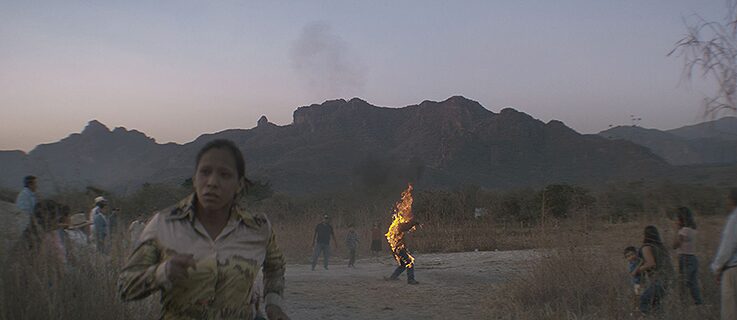 “Robe of Gems“ by Natalia López Gallardo | Photo (details): © Visit Films
“Robe of Gems“ by Natalia López Gallardo | Photo (details): © Visit Films
Unusual directing styles
Asia is represented by Chinese director Li Ruijun with Return to Dust and South Korean festival favourite and regular guest at the Berlinale Competition Hong Sangsoo with The Novelist's Film. There’s also a documentary film in the Competition, Rithy Panh’s Everything Will Be Ok. Further unusual directing styles are found in the form of Canadian filmmaker Denis Côté (Un été comme ça) and Paolo Taviani, who is directing on his own for the first time since the death of his brother Vittorio in Leonore Addio. These can also be seen away from the Competition: in the Berlinale Special Gala, much hype surrounds the joint appearance of Isabelle Huppert and Lars Eidinger in Laurent Larivière’s À propos de Joan. The spectrum is equally broad for the 15 world premieres in the Encounters series, including a feature film by eccentric writer-director Bertrand Bonello (Coma), as well as genre specialist Peter Strickland (Flux Gourmet).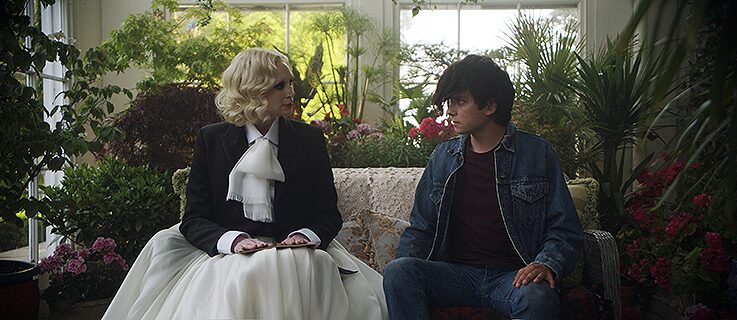 “Flux Gourmet“ by Peter Strickland | Photo (detail): © Flux Gourmet, Bankside Films, IFC Productions I
“Flux Gourmet“ by Peter Strickland | Photo (detail): © Flux Gourmet, Bankside Films, IFC Productions I